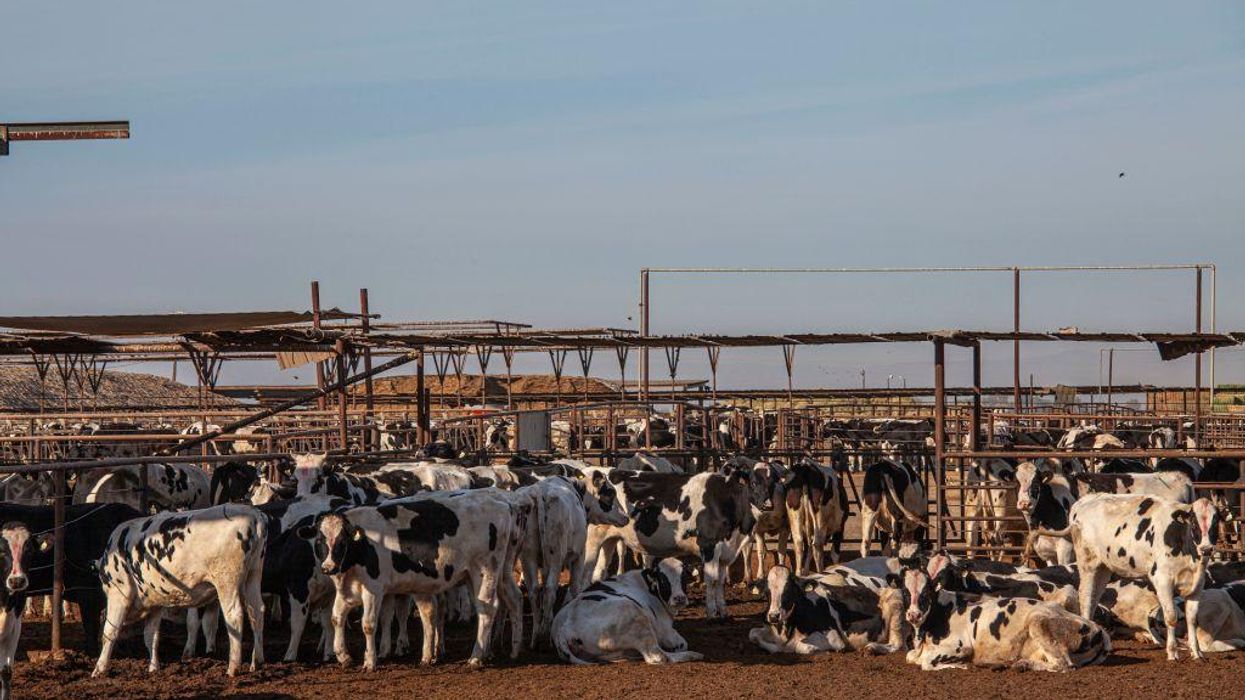
Citizen of the Planet/UCG/Universal Images Group via Getty Images

A federal court blocked the state of Iowa's efforts to prevent animal rights activists from filming commercial livestock operations, reports the Des Moines Register.
Since 2012, Iowa has passed four statutes, known by opponents as "ag-gag" laws, that target animal rights activists who have published video and images from inside large livestock facilities, “sometimes infiltrating them by signing on as employees without revealing their true intent,” explains the Register.
In 2020, Iowa passed the latest legislation on the issue. One provision made it illegal for a person committing the act of trespassing on private property to place or use "a camera or electronic surveillance device that transmits or records images or data while the device is on the trespassed property."
In 2021, a group of animal-rights organizations — including The Animal Legal Defense Fund and People for the Ethical Treatment of Animals — sued Iowa over the law, citing First Amendment violations. The organizations sought to block the enforcement of the state's ban on unauthorized recordings while trespassing, arguing that the statute "impermissibly restricts speech by making it a crime to place an electronic surveillance device on trespassed property."
The state argued that the law prohibits conduct, not speech, and thus is not implicated by the First Amendment. The state further argued that even if the law did fall under First Amendment scrutiny, it was "narrowly tailored to a significant governmental interest" and would still be constitutional.
The U.S. District Court of the Southern District of Iowa sided with the animal-rights organizations. The court held that creating a video recording is a form of protected speech. "Motion pictures and videos are included within the First Amendment's ambit," Judge Stephanie Rose wrote. "In addition to the doctrine regarding the creation of speech, the Eighth Circuit has found that recording, production, editing, and publication of videos is protected speech."
Rose also found that the law could incorporate conduct far beyond its initial intention. "It is certainly true that property rights and privacy are (an) important governmental interest but there is next to nothing in the record to allow the court to find that the state narrowed the act appropriately even though this burden rests on the state," the judge wrote.
Reason notes that while animal-rights activists remain free to make video recordings of animal treatment they find unethical, they still risk trespassing charges when stepping onto the farms.